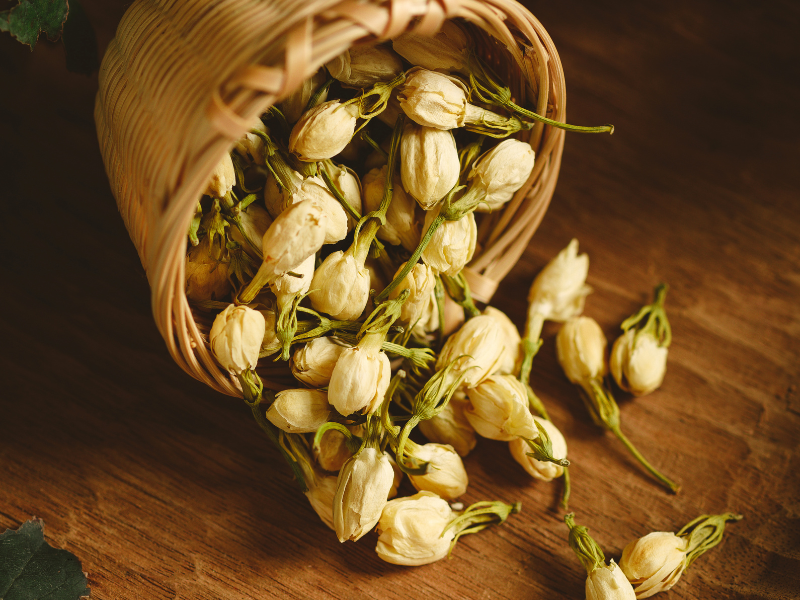Imagine savoring a cup of steaming tea that carries the delicate, sweet scent of blooming flowers— a fragrance that instantly transports you to serene gardens under a moonlit sky. This isn’t just any beverage; it’s jasmine tea, a centuries-old delight that has captivated hearts worldwide. But what do we call this aromatic brew in English? As a term deeply rooted in global tea culture, “jasmine tea” serves as its universal moniker, reflecting its journey from ancient Chinese traditions to modern-day wellness rituals. In this exploration, we’ll uncover the fascinating story behind jasmine tea, from its historical origins and production methods to its noteworthy health benefits and cultural significance. For tea enthusiasts and newcomers alike, understanding this fragrant infusion in English unlocks a gateway to embracing its allure in everyday life.
At its core, jasmine tea is a type of scented tea, where green tea leaves (or occasionally white or oolong varieties) are artfully blended with jasmine blossoms to infuse their heady aroma. The English name— “jasmine tea”— is straightforward yet evocative, mirroring its key ingredient: the jasmine flower, scientifically known as Jasminum. This terminology avoids confusion with other floral teas like rose or chrysanthemum varieties. Historically, jasmine tea traces back to China’s Song Dynasty (960–1279 AD), where it emerged as a prized export due to its exquisite flavor profile. Scholars believe it originated in Fujian province, where artisans perfected the scenting process to create a harmonious balance between the tea’s earthiness and the flowers’ perfumed notes. Today, this tradition thrives globally, with many associating jasmine tea with relaxation and refinement— a cultural bridge uniting East and West through shared appreciation.

Delving into its creation reveals the meticulous artistry behind jasmine tea. Producers typically harvest high-quality tea leaves in spring, allowing them to rest before layering them with freshly picked jasmine blossoms during summer nights. This nighttime scenting is crucial, as the blossoms release their strongest fragrance in cool evening air. Over days or weeks, the petals are replaced multiple times to build a rich, layered aroma without overpowering the tea base. As a result, authentic jasmine tea offers a subtly sweet, floral taste that many describe as “calming” or “uplifting.” The process ensures that the final product isn’t just aromatic; it’s a testament to sustainable practices, often involving organic farming methods to preserve purity. For optimal enjoyment, experts recommend brewing it with water below boiling point (around 170°F or 80°C) to prevent bitterness and steeping for 2–3 minutes— a ritual that enhances its delicate notes when served plain or with a touch of honey.
Beyond its sensory pleasures, jasmine tea boasts impressive health advantages that contribute to its widespread popularity. Rich in antioxidants like catechins and EGCG, it may support heart health by reducing inflammation and improving cholesterol levels. Studies, such as those cited in nutrition journals, suggest that regular consumption can aid in stress relief, largely due to the linalool compound in jasmine, which has calming effects on the nervous system. Additionally, its low caffeine content makes it a gentle alternative to black tea or coffee, promoting hydration without jitters. Weight management is another noted benefit, as antioxidants help boost metabolism and curb cravings— a reason why it often features in holistic wellness routines worldwide. However, it’s essential to source pure blends from reputable suppliers to avoid additives that dilute these perks, ensuring you experience the authentic essence that defines jasmine tea in English contexts.
Culturally, jasmine tea transcends mere refreshment, embodying symbolism in ceremonies and daily rituals. In Chinese traditions, it symbolizes purity and grace, often served during celebrations like weddings to represent lasting happiness. As it spread to Europe and America via trade routes in the 18th century, it became synonymous with elegant hospitality, featured in tearooms and high-end cafes. This cultural integration highlights how the English term “jasmine tea” seamlessly fits into global conversations, fostering appreciation for artisanal craftsmanship. To bring this into your own life, seek out loose-leaf versions from trusted brands— look for certifications like “orthodox processing” to ensure quality. Whether you’re relaxing after a busy day or hosting friends, a cup of jasmine tea invites mindfulness, turning simple moments into cherished traditions.